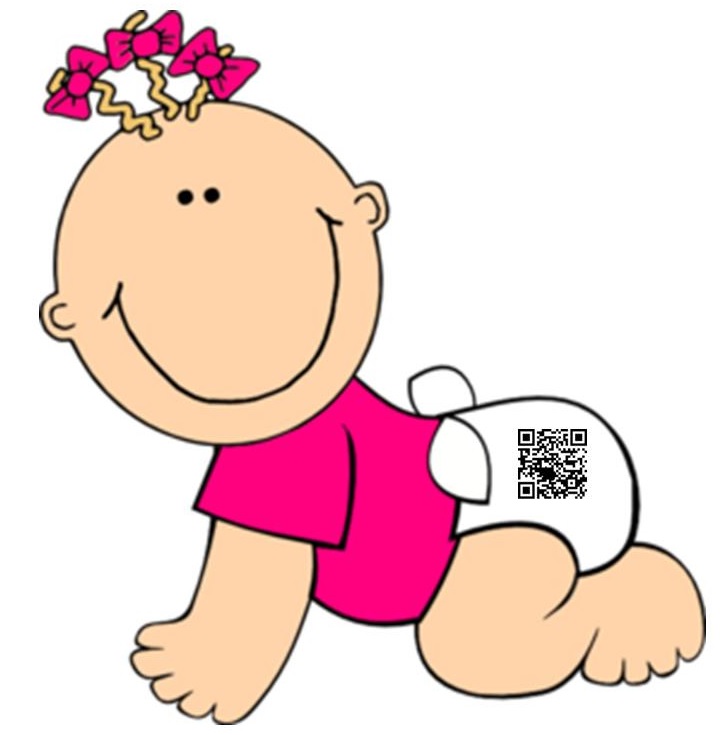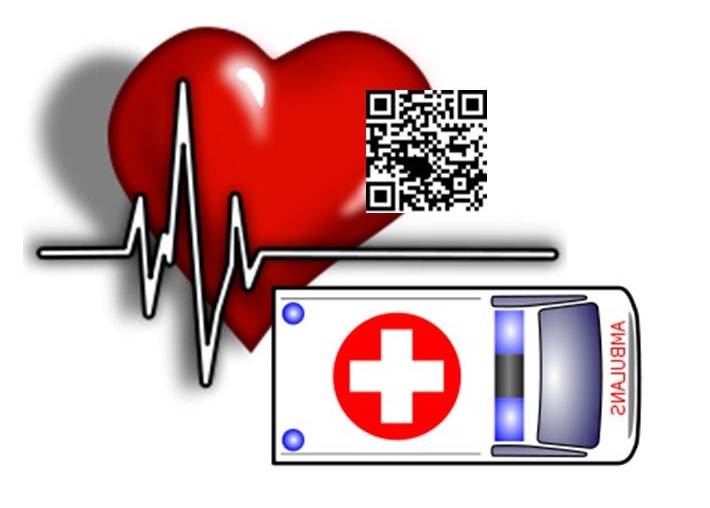The latest “smart diaper” product provides parents with a color coded system to detect urinary tract infections.
A new form of diaper that uses scannable QR codes has just been invented by an American husband and wife team that will help other parents to be able to detect potentially developing urinary issues before they become problematic.
Though the product is only in its prototype phase now, it has the potential to be very helpful to concerned parents.
The design of the diaper includes strips that come in contact with the absorbent area and that change color when they are wet. These strips are located around QR codes that can then be scanned by the parents of the child.
When the QR codes are scanned the associated app snaps an image of the color of the strips.
 The app then proceeds to perform an analysis of the color of the strips so that the parent can tell whether or not a urinary infection may be present. The reason that these QR codes can be very helpful to parents is that urinary tract infections (UTIs) impact approximately 8 percent of all babies. They are a particular concern among girls.
The app then proceeds to perform an analysis of the color of the strips so that the parent can tell whether or not a urinary infection may be present. The reason that these QR codes can be very helpful to parents is that urinary tract infections (UTIs) impact approximately 8 percent of all babies. They are a particular concern among girls.
Without tools such as the QR codes on the color coded diapers, it can be very difficult for parents to detect the infections until they have fully developed and begin presenting very unpleasant symptoms such as fever and irritability.
With the smart diaper, parents are armed with a form of early warning system that can let them know if an infection could be coming on, even before any other symptoms have appeared. All that is required is that QR codes be scanned once per day or so. The app not only scans the color of the strips on the diaper, but it also stores the data so that medical professionals can examine it during checkups or if a problem has been detected. This can help doctors to recognize potential dehydration or kidney dysfunction.
Though the response to these QR codes on diapers has been very positive, Netmums, a U.K. based parenting advice website has cautioned parents not to forget to use common sense just because they have a new technology tool.
 By personalizing the barcodes, first responders can gain immediate access to patient information.
By personalizing the barcodes, first responders can gain immediate access to patient information.
A contest called the Startup Weekend Health competition in Philadelphia was held for the second time this year, and in this instance, it was won by a concept for using personalized QR codes that provide emergency responders, such as paramedics, to scan them in order to obtain relevant patient data.
This use of the barcodes allows the medical professionals to obtain vital information right away.
Even if a patient has been rendered unconscious, is in shock, or is unable to provide accurate information, the QR codes give the first responders access to his or her medical information. The hope is that by using technology in this way, it could help medical personnel to reduce the chance of accidentally administering the wrong type of treatment to a patient.
The data revealed by the QR codes could help an emergency responder to better save a life.
This is because by scanning the QR codes in an emergency room or even out when a paramedic is responding to a call, the patient’s allergies, the medications that he or she is taking, and his or her medical conditions can be revealed. This can help the responder to make a decision that is more appropriate to the needs of that specific individual.
Moreover, When the right app is used, it becomes possible for QR codes to give the medical responders the ability to send out a text message to the patient’s emergency contacts. This way, even more information can become available, and personal support can become available to that patient.
The entire concept for the QR codes used in this way was pitched for the contest by a team from the In Case of Emergency (mICE) program. The leader of that group, David Bendell, made the actual pitch, and the entire plan for the program itself was put together by a team of seven people within 48 hours of the pitch itself. Though they won first prize – an interview with DreamIt Health, their main concern is now that two members of the team (including Bendell, himself) are international students. They will need to find full time jobs before May 2013 or their visas will run out before they can continue this project.
 The app then proceeds to perform an analysis of the color of the strips so that the parent can tell whether or not a urinary infection may be present. The reason that these QR codes can be very helpful to parents is that urinary tract infections (UTIs) impact approximately 8 percent of all babies. They are a particular concern among girls.
The app then proceeds to perform an analysis of the color of the strips so that the parent can tell whether or not a urinary infection may be present. The reason that these QR codes can be very helpful to parents is that urinary tract infections (UTIs) impact approximately 8 percent of all babies. They are a particular concern among girls.
 By personalizing the barcodes, first responders can gain immediate access to patient information.
By personalizing the barcodes, first responders can gain immediate access to patient information.